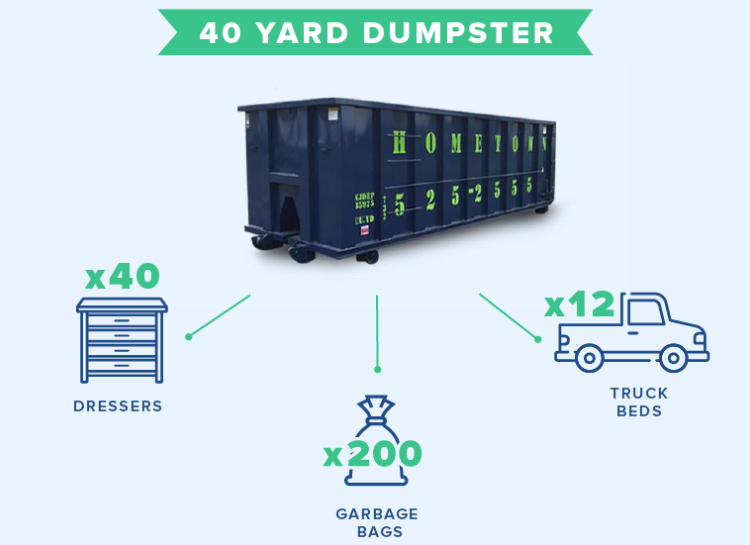How To Choose The Right Dumpster Size For Your Job: A Comprehensive Guide
How To Choose The Right Dumpster Size For Your Job: A Comprehensive Guide
Blog Article
Content Writer-Romero Hunter
When starting a task that needs a dumpster, the size you select can considerably affect its effectiveness and cost-effectiveness. Picture having the best container that fits all your waste without being exceedingly huge or as well small. All of it beginnings with recognizing the nuances of your task and selecting a dumpster size that aligns with your certain needs. So, before you decide, take into consideration the factors at play to ensure a smooth waste administration process from beginning to end.
Factors to Think about
When choosing the ideal dumpster size, there are several vital factors to think about.
First, think about the sort of waste you'll be dealing with. Different materials may need varying amounts of area, so comprehending what you'll be placing in the dumpster is essential.
Next, examine the amount of waste you anticipate to produce. If you underestimate the quantity, you may require to make several trips to dispose of whatever, which can be bothersome and expensive. On the other hand, leasing a dumpster that's also big can bring about unnecessary expenses.
In addition, consider the area where the dumpster will be positioned. Ensure there's enough space for the dumpster to be provided and picked up with no blockages.
Finally, think about any type of weight limitations that might apply. Surpassing the weight limitation can lead to added charges or even the rejection of service.
Dumpster Dimension Options
For choosing the best dumpster dimension, it's necessary to have a mutual understanding of the readily available options. Dumpster sizes usually vary from 10 to 40 cubic backyards, with variations in between.
A 10-yard dumpster appropriates for little jobs like a garage cleanout or a small improvement. If you're taking on a medium-sized project such as a cooking area remodel or a basement cleanout, a 20-yard dumpster might be the right choice.
For bigger jobs like a whole-house restoration or business building, a 30 or 40-yard dumpster could be better to accommodate the volume of waste produced.
When deciding on a dumpster dimension, take into consideration the quantity and kind of debris you expect to take care of. It's better to choose a somewhat bigger dimension if you're not sure to stop overfilling. Remember, Budget Dumpster Rental 's more cost-efficient to lease a dumpster that fits your demands as opposed to having to buy an additional one.
Matching Dimension to Project
Efficiently matching the dumpster dimension to your task is critical for reliable waste management. To determine https://postheaven.net/wilhelmina82winford/when-is-the-very-best-time-to-lease-a-dumpster , consider the range and nature of your job.
For small household cleanouts or renovations, a 10-yard dumpster may suffice. These are normally 12 feet long and can hold around 4 pickup tons of waste.
For bigger tasks like renovating multiple spaces or clearing out a huge estate, a 20-yard dumpster could be better. These are around 22 feet long and can hold roughly 8 pickup loads.
If you're tackling a major building project or commercial remodelling, a 30-yard dumpster could be the best fit. These dumpsters have to do with 22 feet long and can fit about 12 pickup tons of debris.
Matching the dumpster size to your task guarantees you have enough area for all waste materials without paying too much for extra capability.
Verdict
To conclude, choosing the best dumpster dimension for your project is important for effective garbage disposal. By considering aspects like the kind and quantity of waste, area accessibility, weight constraints, and spending plan restraints, you can guarantee you have the suitable dimension dumpster for your requirements. Make sure to match the size of the dumpster to the extent and nature of your job to stay clear of overspending on unnecessary expenditures.
